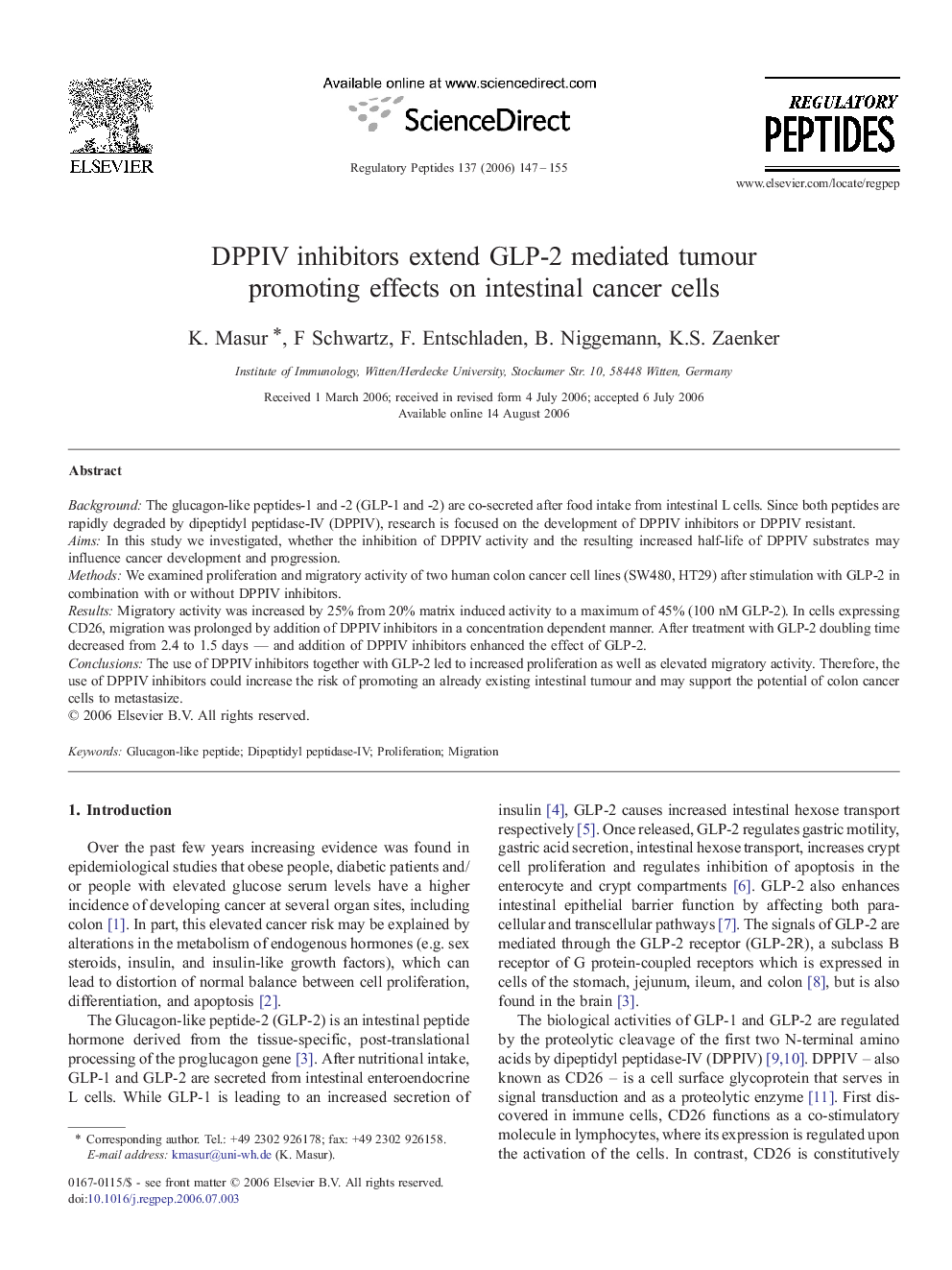| Article ID | Journal | Published Year | Pages | File Type |
|---|---|---|---|---|
| 2023534 | Regulatory Peptides | 2006 | 9 Pages |
BackgroundThe glucagon-like peptides-1 and -2 (GLP-1 and -2) are co-secreted after food intake from intestinal L cells. Since both peptides are rapidly degraded by dipeptidyl peptidase-IV (DPPIV), research is focused on the development of DPPIV inhibitors or DPPIV resistant.AimsIn this study we investigated, whether the inhibition of DPPIV activity and the resulting increased half-life of DPPIV substrates may influence cancer development and progression.MethodsWe examined proliferation and migratory activity of two human colon cancer cell lines (SW480, HT29) after stimulation with GLP-2 in combination with or without DPPIV inhibitors.ResultsMigratory activity was increased by 25% from 20% matrix induced activity to a maximum of 45% (100 nM GLP-2). In cells expressing CD26, migration was prolonged by addition of DPPIV inhibitors in a concentration dependent manner. After treatment with GLP-2 doubling time decreased from 2.4 to 1.5 days — and addition of DPPIV inhibitors enhanced the effect of GLP-2.ConclusionsThe use of DPPIV inhibitors together with GLP-2 led to increased proliferation as well as elevated migratory activity. Therefore, the use of DPPIV inhibitors could increase the risk of promoting an already existing intestinal tumour and may support the potential of colon cancer cells to metastasize.
